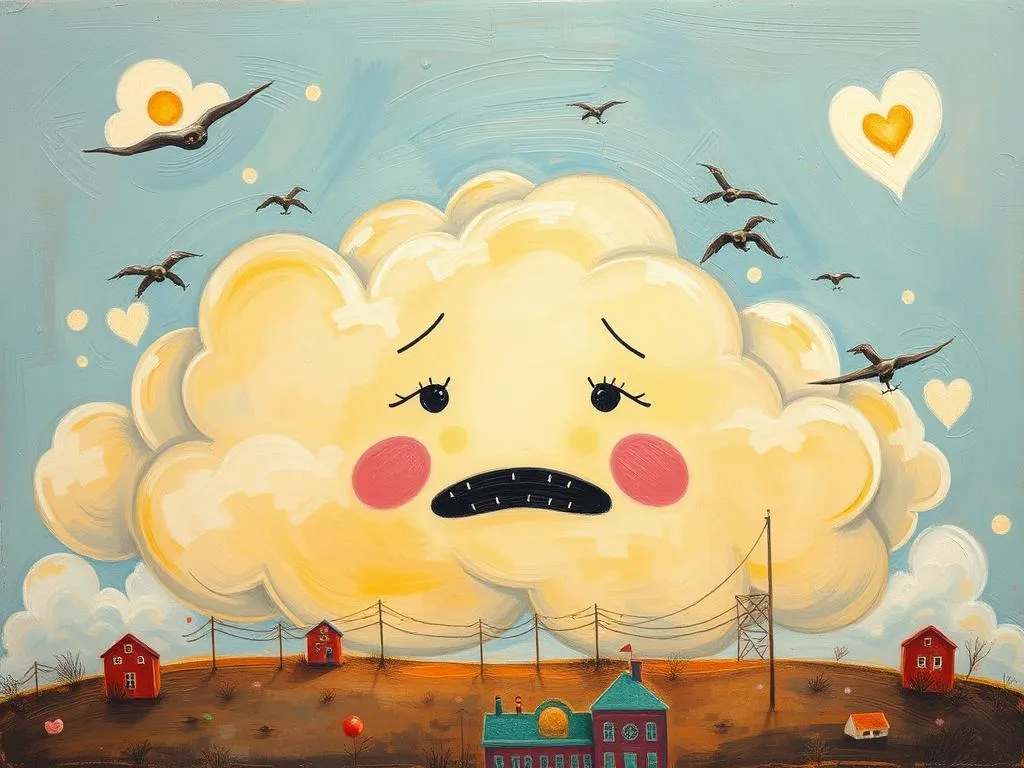
Dreams have long fascinated humanity, serving as a window into our subconscious minds. Among various themes, guilt is a particularly poignant symbol that resonates deeply with many people. Dreams where guilt plays a central role can evoke powerful emotions and provoke introspection. This article delves into the symbolism and meaning behind guilty dreams, explores key scenarios that might arise in such dreams, and provides insights on how these dreams connect to our waking lives.
Symbolism and Meaning
The guilt dream symbol often reflects unresolved feelings or experiences that weigh heavily on the dreamer’s conscience. When we dream of guilt, it can manifest in various forms—a sense of remorse for past actions, anxiety over a decision made, or feelings of inadequacy. In these dreams, the mind may be urging the individual to confront inner conflicts that have been suppressed or ignored.
A common symbol in guilty dreams is the pursuer. This figure, whether human or abstract, can represent an unresolved issue or a part of ourselves that we are trying to escape. This can be a person from the past, a situation we regret, or a choice we wish we had made differently. The act of being chased often symbolizes our attempts to evade these feelings instead of confronting them.
Another prevalent symbol is failure. In dreams where guilt is present, we may find ourselves failing at tasks or responsibilities. This failure may not only reflect our anxieties about our capabilities but also symbolize the guilt we feel for not meeting our own expectations or those imposed by others. The feeling of inadequacy often ties into deeper fears of rejection or abandonment.
The setting of these dreams can also significantly influence their meaning. A familiar environment can symbolize the context of our real-life experiences, while an unfamiliar setting may indicate feelings of being lost or out of control. The emotional tone of the dream—whether it is chaotic or calm—also plays a critical role in interpreting the guilt. A chaotic dream can indicate overwhelming feelings, while a calm but somber dream might suggest a more reflective state of mind.
Profoundly, the presence of other people in these dreams can add layers to the interpretation. For example, dreaming of a loved one while feeling guilty might indicate unresolved issues within that relationship. Alternatively, dreaming about a stranger might reflect aspects of ourselves that we do not recognize or accept. In this way, the guilt dream symbol serves as a mirror, reflecting our inner turmoil and unresolved conflicts.
Key Scenarios and Variations
Guilty dreams can take on various scenarios, each with its unique nuances that alter their interpretation. One common scenario involves betrayal. In this dream, the dreamer may find themselves betraying a friend or loved one, which often signifies underlying feelings of disloyalty or fear of being unworthy of trust. This scenario can prompt the dreamer to reflect on their relationships, assessing whether they have acted in ways that align with their values.
Another frequent scenario is the lost opportunity. Here, the dreamer may encounter a situation where they regret not making a different choice—perhaps not pursuing a career path, or missing out on a relationship. This type of dream can signify feelings of nostalgia and a longing for a different life, encouraging the dreamer to evaluate their current path and consider whether they are living authentically.
Revisiting Past Mistakes is yet another scenario that can invoke guilt in dreams. The dreamer might find themselves in a situation reminiscent of a past error, reliving the feelings associated with that mistake. This often points to unresolved feelings about that event, suggesting that the dreamer needs to forgive themselves or take steps toward making amends.
The presence of judgment in a dream can also amplify feelings of guilt. For instance, dreaming that one is being judged or criticized by others—especially authority figures—can reflect the dreamer’s internalized standards and fears of inadequacy. This scenario prompts a self-examination of how much we allow external opinions to shape our self-worth and whether we need to set healthier boundaries.
Finally, apology scenarios can emerge within guilty dreams. The dreamer may find themselves apologizing for past actions, either to familiar faces or complete strangers. This scenario often represents a desire for reconciliation and a yearning to let go of the burden of guilt. It suggests that the dreamer is ready to acknowledge their mistakes and seek forgiveness, either from themselves or others.
Real-Life Connections and Takeaways
Understanding the symbolism and scenarios related to guilty dreams can offer profound insights into our waking lives. If you find yourself frequently experiencing dreams steeped in guilt, it may be a signal to engage in self-reflection and introspection. Consider the following approaches to connect these dreams to your life:
Begin by journaling your dreams upon waking. Record not only the details of the dream but also your feelings during and after the experience. This practice can help you identify recurring themes and symbols that may be relevant in your waking life. Reflect on what the dream may be trying to communicate about your current emotional state or unresolved issues.
Next, take a moment to evaluate your relationships. Are there any unresolved conflicts or feelings of betrayal that need addressing? Acknowledging these feelings can often lead to healthier communication and resolution. If you find yourself feeling guilty about an action taken against someone, consider reaching out to them to express your feelings and seek closure.
It’s also essential to confront your fears of failure or inadequacy. Are there areas in your life where you feel you are not meeting your potential? Acknowledge these feelings and consider what practical steps you can take to improve your situation. Setting realistic goals and celebrating your achievements—no matter how small—can help alleviate the burden of guilt.
In addition, consider practicing self-compassion. Often, guilt stems from harsh self-judgment and unrealistic expectations. It’s crucial to recognize that everyone makes mistakes and that growth often comes from these experiences. Allow yourself the grace to learn from past actions rather than being consumed by them.
Lastly, take time to visualize forgiveness. Whether it’s forgiving yourself or others, visualizing this process can help release the weight of guilt. Imagine a scenario where you express your feelings of regret and seek understanding. This exercise can create a sense of closure and help pave the way for emotional healing.
In conclusion, guilty dreams serve as a powerful symbol of our inner conflicts and unresolved emotions. By exploring the symbolism, key scenarios, and real-life connections of these dreams, we can gain valuable insights into our emotional landscape. Reflecting on these dreams can facilitate personal growth and healing, allowing us to navigate our lives with greater clarity and self-understanding. As you explore the meanings behind your dreams, remember that they are not just fleeting images but meaningful messages from your subconscious, urging you to confront and embrace your true self.







